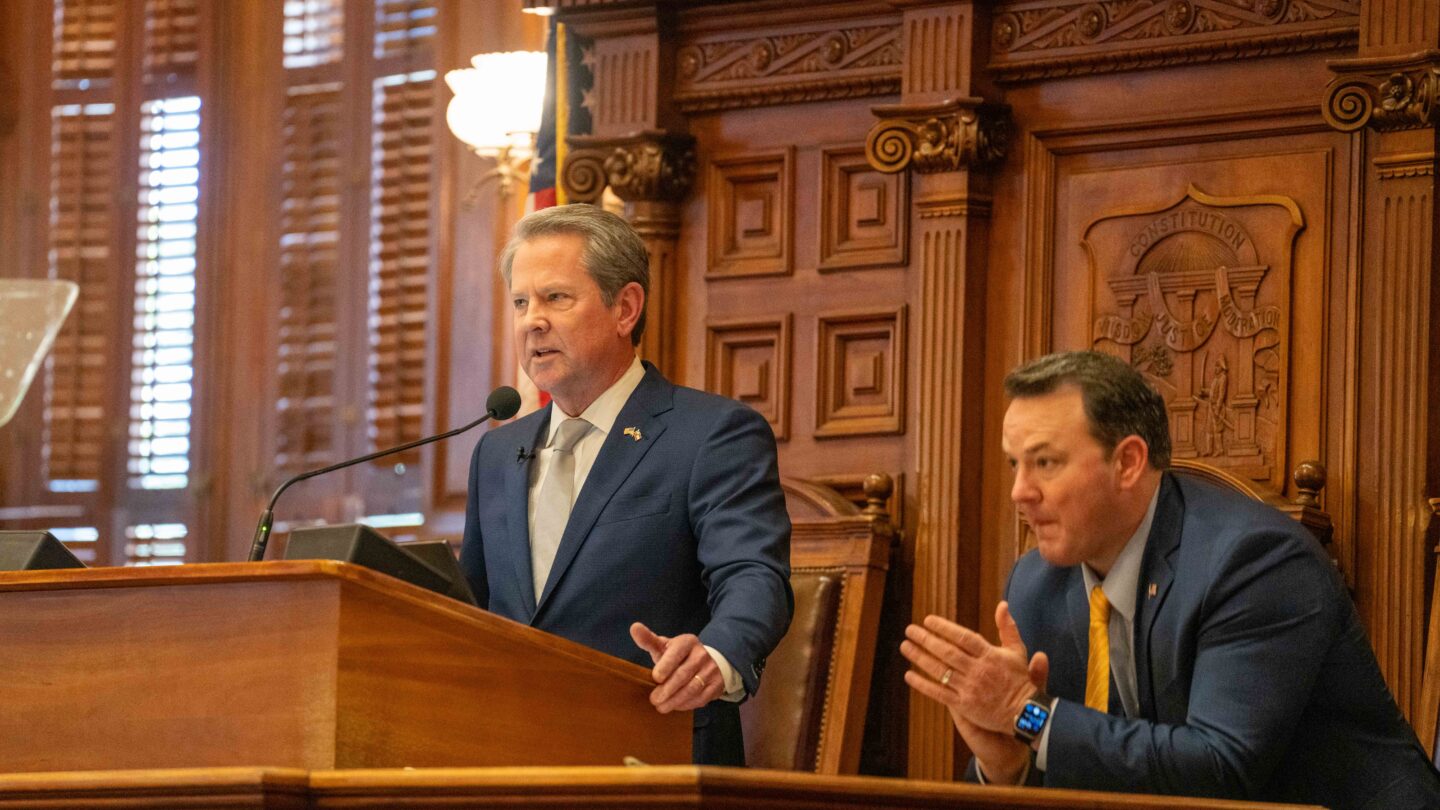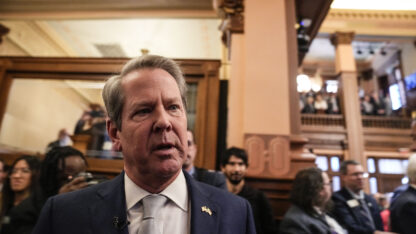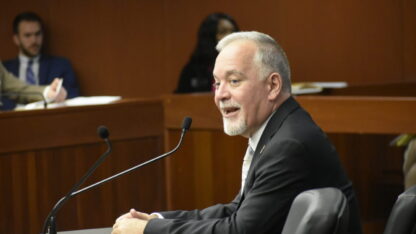Georgia, a capital for electric vehicle production, needs to increase its supply of electricity produced without burning fossil fuels in order to meet industries’ demand for clean energy, Gov. Brian Kemp told world business leaders Thursday.
Speaking as part of a panel focused on electric vehicles at the World Economic Forum in Davos, Switzerland, the Republican governor highlighted the construction of Georgia Power’s two new nuclear reactors at Plant Vogtle, near Augusta — the country’s first new reactors in decades.
“We’ve done as much as anybody in the country … but we’re going to have to have more,” Kemp said.
It’s Kemp’s second year in a row to visit the forum of world business and political leaders. He told The Associated Press on Thursday in Davos that the trip is aimed at “really just selling the state from an economic development standpoint.”
That includes touting the electricity produced at Plant Vogtle. One of the reactors in the $31 billion project is generating power, while the other is expected to reach commercial operation in coming months.
“We’re letting people know that we got a great airport, great seaport, got a great energy supply with our two nuclear reactors that are online and coming online,” Kemp said.
The fellow members of Kemp’s panel said that electric vehicles need to be made with electricity that isn’t produced by burning coal, oil or natural gas that emits world-warming carbon dioxide. Zeng Yuqun, founder and chairman of Chinese battery manufacturer Contemporary Amperex Technology Co., or CATL, said a “dirty battery,” or one produced with lots of carbon emissions, is “big trouble.”
“That’s why I’m looking for sustainability in all of this very quickly,” said Zeng, one of China’s richest people.
Kemp, who said Georgia is “well on our way” to achieving his goal of being the “e-mobility capital of the world,” said he hears the need for clean energy from firms such as Hyundai Motor Group and Rivian Automotive.
“Talking to the companies that we’re recruiting, people that are looking to the state, they obviously want to produce with clean energy,” Kemp said.
It’s another instance of how Kemp has shied away from tackling climate change directly, but has welcomed some changes in the name of business recruitment.
The governor said he would look to electric utility Georgia Power Co. and its Atlanta-based parent, Southern Co., to meet those clean energy needs. But environmentalists have panned a current request from Georgia Power to increase its generating capacity largely using fossil fuels.
Kemp told the AP that he remains confident in his push to recruit electric vehicle makers, despite a slowdown in electric vehicle sales in the United States. He blamed a law backed by President Joe Biden that included big incentives for buying American-made electric vehicles, saying it “tried to push the market too quick.”
“I think the market’s resetting a little bit now. But I do not think that’s going to affect the Georgia suppliers — everybody’s still very bullish on what’s going on in Georgia. And I am too.”
Kemp told the panel the biggest challenge in Georgia’s electric vehicle push is making sure manufacturers and their suppliers can hire enough employees.
“That’s the big thing for us is making sure we have the workforce,” Kemp said.










